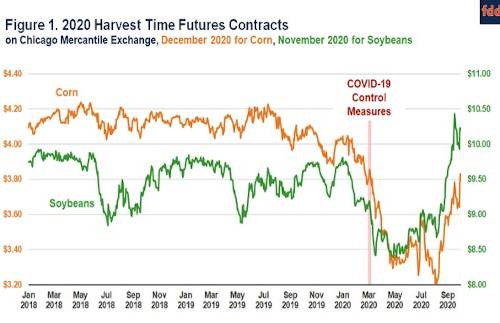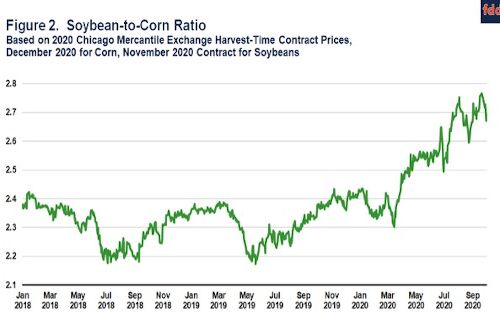Farm groups are asking the Trump administration for support
By Diego Flammini
Staff Writer
Farms.com
Some American farm organizations are reaching out to the Trump administration for support as producers try to navigate the COVID-19 pandemic.
In a March 17 letter to Agriculture Secretary Sonny Perdue, the American Farm Bureau Federation (AFBF) requested cattle producers be given leniency in loan payments.
“For many livestock producers, Farm Service Agency loan payments are due now,” Zippy Duvall, president of the AFBF, wrote in the letter. “Can the USDA consider temporary relief (such as deferment or loan adjustment) to help producers respond to the impact the pandemic is having on normal marketing and prices?”



Livestock prices have fallen sharply during the coronavirus outbreak.
Cattle markets tend to follow similar trend lines as other markets, said Abhinesh Gopal, a commodity analyst with Farms.com Risk Management.
“Beef and cattle prices normally react strongly to movements in the U.S. stock market,” he said. “Cattle prices have mirrored those markets over the last two months and have fallen hard.
“Since mid-January, live cattle futures have fallen by about 28 percent (because) falling markets means lower perceived demand for meat and exports get hit in a big way.”
In mid-January, June live cattle futures were trading close to US$120/cwt. That price has dropped to almost US$85/cwt, Gopal added.
Because of these steep price declines, one livestock organization requests financial assistance.
Grain producers received market facilitation payments during the trade war with China.
The USDA should make a similar program available to livestock producers dealing with the fallout of the COVID-19 pandemic, the United States Cattlemen’s Association said.
“We ask that you and your staff take immediate action through the utilization of your authority under the Commodity Credit Corporation,” the organization said in a March 16 letter to Secretary Perdue. “In short, funds and programs are needed to ensure that cattle producers and feeders that are experiencing excessive price losses are provided immediate relief.”